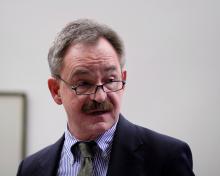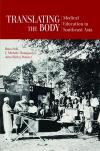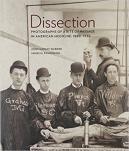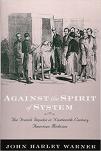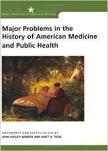John Harley Warner
John Harley Warner, an historian who focuses chiefly on American medicine and science, received his Ph.D. in 1984 from Harvard University (History of Science), and from 1984-1986 was a Postdoctoral Fellow at the Wellcome Institute for the History of Medicine in London. In 1986 he joined the Yale faculty with a primary appointment in the School of Medicine, where he is now Chair of the Section of the History of Medicine. His research interests include the cultural and social history of medicine in 19th and 20th century America, comparative history (particularly British, French, and North American medicine), and medical cultures since the late 18th century. He is especially interested in clinical practice, orthodox and alternative healing, the multiple meanings of scientific medicine, and the interactions among identity, narrative, and aesthetics in the grounding of modern medicine.
Current Research
A book with the working title The Quest for Authenticity in Modern Medicine.
A study of the transformation of the hospital patient chart, 19th through 21st centuries, tentatively titled Bedside Stories: Clinical Narrative and the Grounding of Modern Medicine.
A book-length study tentatively titled The Death of James Jackson, Jr. and the Birth of the American Clinic.
Selected Publications:
Books, edited volumes
Translating the Body: The History of Medical Education in Southeast Asia, co-edited with Hans Pols and Michele Thompson (Singapore: National University of Singapore Press), forthcoming in spring 2017.
Dissection: Photographs of a Rite of Passage in American Medicine, 1880-1930 (New York: Blast Books, 2009), with James M. Edmonson
Locating Medical History: The Stories and Their Meanings, Baltimore and London, Johns Hopkins Univ. Press, March 2004, co-edited with Frank Huisman; paperback edition, 2006.
Major Problems in the History of American Medicine and Public Health, Boston: Houghton Mifflin, 2001; co-editor with Janet A. Tighe.
Against the Spirit of System: The French Impulse in Nineteenth-century American Medicine, Princeton University Press, 1998. New paperback edition (Baltimore and London: Johns Hopkins Univ. Press, Fall 2003, in press.)
The Therapeutic Perspective: Medical Practice, Knowledge, and Identity in America, 1820-1885, Harvard University Press, 1986; with new preface, Princeton University Press, 1997.
Articles
“Health, Healing, and Medical Education in Southeast Asia,” in Hans Pols, Michele Thompson, and John Harley Warner, eds., Translating the Body: The History of Medical Education in Southeast Asia (Singapore: National University of Singapore Press), with Hans Pols and Michele Thompson, forthcoming in spring 2017.
“Making the Case for History in Medical Education,” Journal of the History of Medicine and Allied Sciences 70 (2015): 623-652. (With David Jones, Jeremy Greene, and Jacalyn Duffin).
“The Art of Medicine in an Age of Science: Reductionism, Holism, and the Doctor-Patient Relationship in the United States, 1890-1960,” in Nanami Suzuki, ed., Healing Alternatives: Care and Education as a Cultural Lifestyle (Osaka: National Museum of Ethnology, 2014), Senri Ethnological Reports, No. 120: 55-91.
“The Aesthetic Grounding of Modern Medicine” (The Fielding Garrison Lecture) Bulletin of the History of Medicine, 88 (2014): 1-47.
“Boundary Crossings in the History of Health Care,” Nursing History Review 22 (2014): 1-5.
“Remapping the History of Medicine,” Health and History 15 (2013): 1-4. (With Naomi Rogers.)
“The Doctor in Early Cold War America,” The Lancet 381 (2013): 1452-1453.
“The Humanising Power of Medical History: Responses to Biomedicine in the 20th-Century United States,” Medical Humanities, 37 (2011): 91-96; earlier versions in Cheng Yuzhiu and Gu Xue, eds., Selected Papers of Beijing Forum 2010: The Harmony of Civilizations and Prosperity for All (Beijing: Peking University Press, 2011), pp. 254-267,
“’A Pledge to the World’: Medical Schools and the Making of American Physicians in the Mid-Nineteenth Century,” in Kerry L. Falvey, ed., Medicine at Yale: The First 200 Years (New Haven: Yale University Press, 2010), pp. 48-51.
“Medicine, Media, and the Dramaturgy of Biomedical Research: Historical Perspectives,” in Peter J. Snyder, Linda C. Mayes, and Dennis D. Spencer, eds., Science and the Media: Delgado’s Brave Bulls and the Ethics of Scientific Disclosure (London: Elsevier, 2009), pp. 13-24.
“Anatomical Instruction and Training for Professionalism from the 19th to the 21st Centuries,” in special issue of Clinical Anatomy on medical professionalism and gross anatomy teaching (with Lawrence J. Rizzolo), 19 (2006): 403-414.
Grand Narrative and Its Discontent: Medical History in the Social Transformation of American Medicine, Journal of Health Politics, Policy and Law, 29:757-780, 2004
Medical Histories, in John Harley Warner and Frank Huisman Locating Medical History: The Stories and Their Meanings, Baltimore and London, Johns Hopkins Univ. Press, 2004, P. 1-30
Making History in American Medical Culture: The Antebellum Competition for Hippocrates, in David Cantor, ed., Hippocrates and Modern Medicine Aldershot, Hantshire: Ashgate 2002, pp. 200-236.
The 1880s Rebellion against the AMA Code of Ethics: ‘Scientific Democracy’ and the Dissolution of Orthodoxy, in Robert Baker, Arthur Caplan, Linda Emanuel, and Stephen Latham, eds., The American Medical Ethics Revolution: How the AMA’s Code of Ethics has Transformed Physicians’ Relationships to Patients, Professionals, and Society, Johns Hopkins University Press, 1999, pp. 52-69.
Paradigm Lost or Paradise Declining? American Physicians and the ‘Dead End’ of the Paris Clinical School, in Caroline Hannaway and Ann La Berge, eds., Constructing Paris Medicine, Rodopi, 1998, pp. 337-383.
Orthodoxy and Otherness: Homeopathy and Regular Medicine in Nineteenth-Century America, in Robert Jütte, Guether B. Risse, and John Woodward, eds., Culture, Knowledge, and Healing: Historical Perspectives of Homeopathic Medicine in Europe and North America, European Association for the History of Health and Medicine, 1998, pp. 5-29.
Rethinking the Reception of the Germ Theory of Disease: Comparative Perspectives, introduction to special issue of J. Hist. Med. and Allied Sci. 52:7-16, 1997. (co-edited with Nancy J. Tomes)
American Physicians in London during the Age of Paris Medicine, in Roy Porter and Vivian Nutton, eds., The History of Medical Education in Britain, Rodopi, 1995, pp. 341-365.
The History of Science and the Sciences of Medicine, Osiris 10:164-193, 1995.
Reconstructing Clinical Activities: Patient Records in Medical History, Social Hist. Med. 5:183-205, 1992. (with Guenter B. Risse)
The Fall and Rise of Professional Mystery: Epistemology, Authority, and the Emergence of Laboratory Medicine in Nineteenth-Century America, in Andrew Cunningham and Perry Williams, eds., The Laboratory Revolution in Medicine, Cambridge University Press, 1992, pp. 310-341.
Ideals of Science and Their Discontents in Late Nineteenth-Century American Medicine, Isis 82:454-478, 1991. Revised version to be reprinted as Professional Optimism and Professional Dismay over the Coming of the New Scientific Medicine, in John Harley Warner and Janet A. Tighe, eds., Major Problems in the History of American Medicine and Public Health, Boston: Houghton Mifflin, 2001, pp. 216-224.
Remembering Paris: Memory and the American Disciples of French Medicine in the Nineteenth Century, Bull. Hist. Med. 55:301-325, 1991.
The Idea of Science in English Medicine: The ‘Decline of Science’ and the Rhetoric of Reform, 1815-1845, in Roger French and Andrew Wear, eds., British Medicine in an Age of Reform, Routledge, 1991, pp. 136-164.
Science, Healing and the Physician’s Identity: A Problem of Professional Character in Nineteenth-Century America, Clio Medica 22:65-88, 1991. Revised version to be reprinted as Science, Healing, and the Character of the Physician, 1820-1860, in John Harley Warner and Janet A. Tighe, eds., Major Problems in the History of American Medicine and Public Health, Boston: Houghton Mifflin, 2001, pp. 143-149.
From Specificity to Universalism in Medical Therapeutics: Transformation in the Nineteenth-Century United States, in Yosio Kawakita, Shizu Sakai, and Yasuo Otsuka, eds., History of Therapy, Proceedings of the 10th International Symposium on the Comparative History of Medicine–East and West, Ishiyaku EuroAmerica, 1990, pp. 193-223; reprinted in Judith Walzer Leavitt and Ronald L. Numbers, eds., Sickness and Health in America: Readings in the History of Medicine and Public Health, 3rd ed. University of Wisconsin Press, 1997, pp. 87-101.
Power, Conflict, and Identity in Mid-Nineteenth-Century American Medicine: Therapeutic Change at rthe Commercial Hospital in Cincinnati, J. Am. Hist. 73:934-956, 1987.
Medical Sectarianism, Therapeutic Conflict, and the Shaping of Orthodox Professional Identity in Antebellum American Medicine, in W. F. Bynum and Roy Porter, eds., Medical Fringe and Medical Orthodoxy, 1750-1850, Croom Helm, 1987, pp. 234-260.
Science in [the Historiography of American] Medicine, Osiris n.s. 1:37-58, 1985; reprinted in Sally Gregory Kohlstedt and Margaret Rossiter, eds., Historical Writing on American Science: Perspectives and Prospects, Johns Hopkins University Press, 1986, pp. 37-58.
The Selective Transport of Medical Knowledge: Antebellum American Physicians and Parisian Medical Therapeutics, Bull. Hist. Med. 59:213-231, 1985.
The Idea of Southern Medical Distinctiveness: Medical Knowlege and Practice in the Old South, in Judith Walzer Leavitt and Ronald L. Numbers, eds., Sickness and Health in America: Readings in the History of Medicine and Public Health, 2nd. ed. University of Wisconsin Press, 1985, pp. 53-70; revised version reprinted in Ronald L. Numbers and Todd L. Savitt, eds., Science and medicine in the Old South, Louisiana State University Press, 1989, pp. 179-205.
The Maturation of American Medical Science, in Judith Walzer Leavitt and Ronald L. Numbers, eds., Sickness and Health in America: Readings in the History of Medicine and Public Health, 2nd ed. University of Wisconsin Press, 1985, pp. 113-125; reprinted in Nathan Reingold and Marc Rothenberg, eds., Scientific Colonialism, 1800-1930: A Cross-Cultural Comparison, Smithsonian Institution Press, 1987, pp. 191-214; and reprinted in Judith Walzer Leavitt and Ronald L. Numbers, eds., Sickness and Health in America: Readings in the History of Medicine and Public Health, 3rd ed., University of Wisconsin Press, 1997, pp. 130-142 (with Ronald L. Numbers)
A Southern Medical Reform: The Meaning of the Antebellum Argument for Southern Medical Education, Bull. Hist. Med. 57:364-381, 1983; revised version reprinted in Ronald L. Numbers and Todd L. Savitt, eds., Science and Medicine in the Old South, Louisiana State University Press, 1989, pp. 206-225.
Exploring the Inner Labyrinths of Creation: Popular Microscopy in Nineteenth-Century America, J. Hist. Med. and Allied Sci. 37:7-33, 1982.
Therapeutic Explanation and the Edinburgh Bloodletting Controversy: Two Perspectives on the Medical Meaning of Science in the Mid-Nineteenth Century, Med. Hist. 24:241-258, 1980.
Physiological Theory and Therapeutic Explanation in the 1860s: The British Debate on the Medical Use of Alcohol, Bull. Hist. Med. 54:235-257, 1980.
Physiology, in Ronald L. Numbers, ed., The Education of American Physicians: Historical Essays, University of California Press, 1980, pp. 48-71.
The Nature-Trusting Heresy: American Physicians and the Concept of the Healing Power of Nature in the 1850’s and 1860’s, Persp. Am. Hist. 11:291-324, 1977-1978.
Education:
Ph.D., Harvard University, 1984
